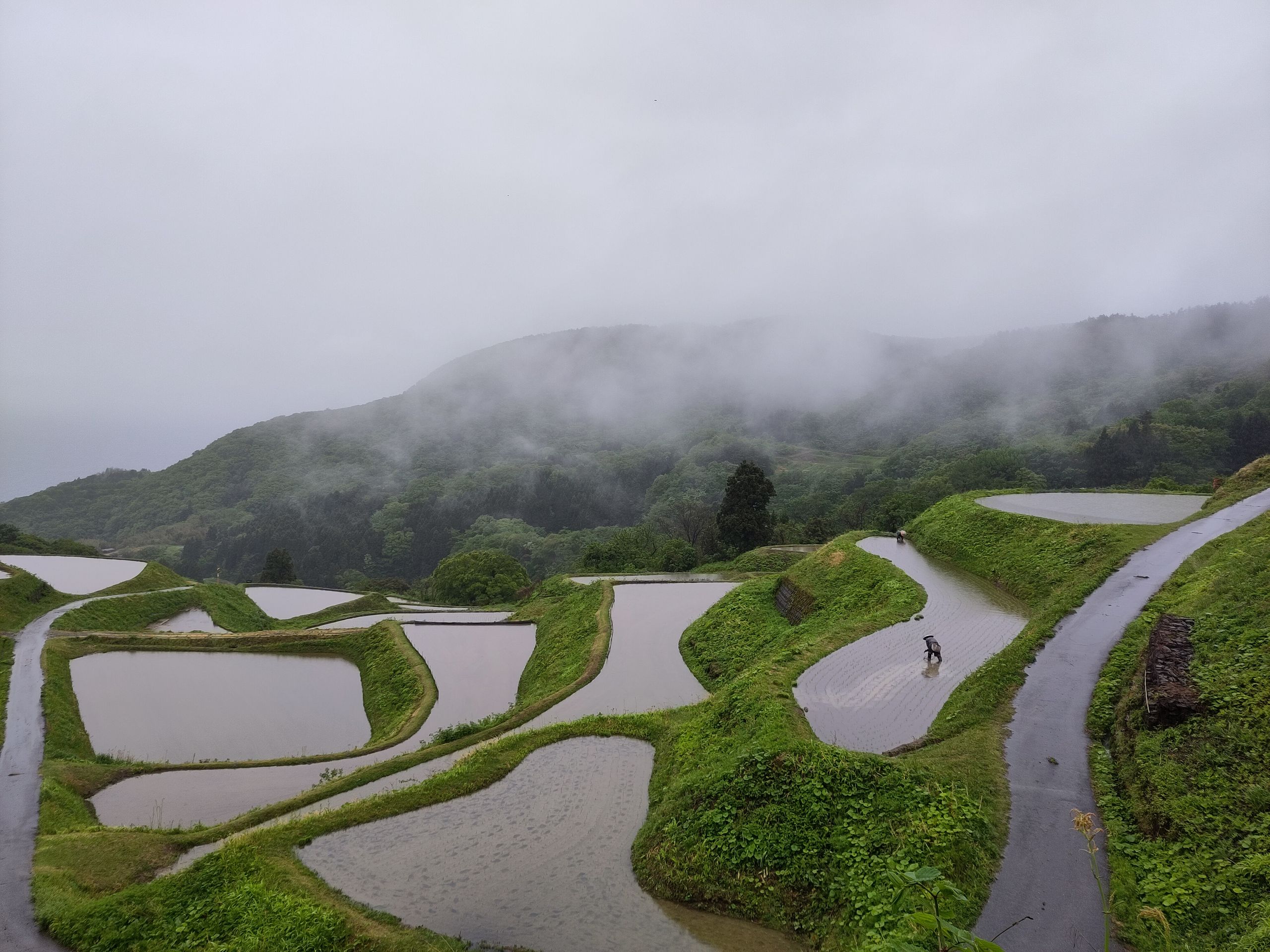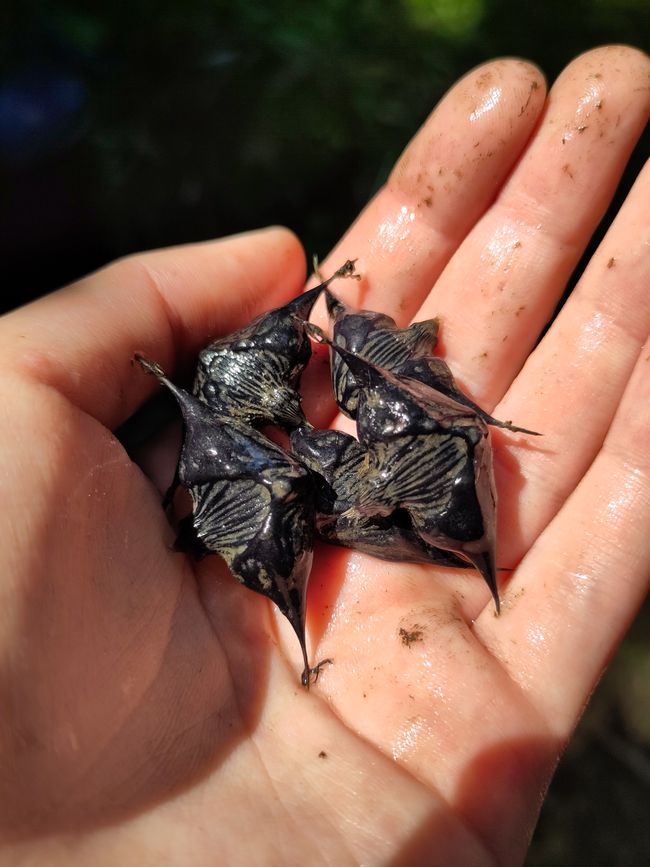
umweltcamp-in-sado-japan
vakantio.de/umweltcamp-in-sado-japan
Sado - Ninjaplants in the ricefield
Oñemoherakuãva: 24.06.2023
Today we are driving back to the center of Sado by car. There, we are meeting a rice farmer and the community supporter of the region. We borrow some knee-high rubber boots used for fieldwork and then continue driving to a cottage on a hill. There are several rice fields there, which are being planted to serve as a food source for Toki and other animals. The small cedar forest is really beautiful, and everything reminds me a bit of a witch's house from a fairy tale. In the morning, we gather various wild plants that we will have for lunch along with the items we brought with us. Among them are some herbs and a few small onions, each with a slightly different taste. One of the onions has a tomato-like flavor, almost like a tomato salad with lots of onion. After lunch, we finally put our rubber boots to use. One of the rice fields is not planted but filled with water to serve as a pond, providing a habitat for more animals. However, the pond is overgrown with a water plant whose seeds have sharp barbed ends. To prevent the pond from becoming overgrown, we manually remove the plants, trying to catch the seeds as well. Even when we pull out the plant with its roots, a single seed can still grow into a new plant. The rice farmer explains that the seeds of this plant were used by ninjas in the past to stop pursuers. The seeds were simply thrown on the ground and acted like caltrops, as most people wore straw sandals. For an hour, we collect the plants from the pond. Since the roots and stems are very robust and the ground is soft and muddy, they can be pulled out relatively easily. It is also much easier to maintain balance with the rubber boots compared to being barefoot. However, we often get stuck in the deep mud and need to exert a lot of strength to free our feet. Once the pond is relatively clean again, we gather a few more wild plants for the next few days' meals and then make our way back
Mbohovái

